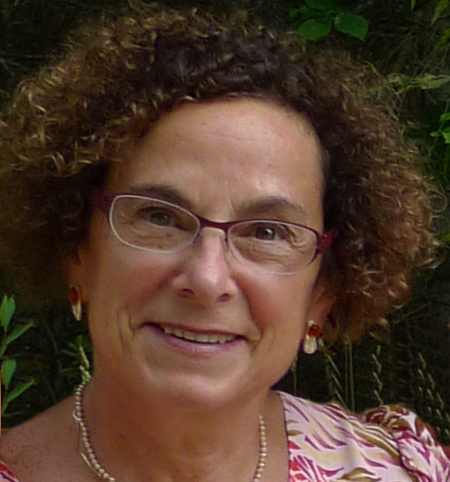
September 13, 2015
Grieve Like a Widow
by Barbara Samuel
When my former husband died, he became my husband again and I became a widow. I didn’t expect anyone to understand, and I told no one. His death freed me to love him again, miss him, celebrate the years we were strong partners, and mourn his passing.
Tom and I married young. It was love at first sight for both of us. I traveled a thousand miles to move in with him after we spent just three hours talking late one night in a friend’s apartment. We were best friends, exclusive friends. He was smart, self-confident, funny, serious, and full of purpose. He had very little ego; he was not so much man as human. I admired and respected him and felt like the luckiest person alive.
The early years of our marriage were a time of wonder, full of adventure and discovery. But there were also shadows. We both struggled with demons — I with eating disorders and he with a succession of chronic mysterious ailments for which no organic cause could ever be found. When, after ten years, back pain began to limit his activities, the long downward spiral began. And when, after fifteen more years, Tom had become a confirmed invalid, housebound, depressed, angry and resentful, I made the heart-wrenching decision to separate so that he could focus on his own issues.
I believe neither of us wanted our marriage to end, but we knew we couldn’t raise our son in the environment that our home life had become. As our son grew up, we made decisions together about his education and his activities. While Tom couldn’t be the kind of dad who took his son fishing or taught him to throw a baseball, he created a world to share with our son in his little apartment. He hosted a variety of pets, introduced our son to great literature through audio books, and encouraged him to pursue and embrace his passions.
In the next fifteen years, I had other relationships and our son grew up. Tom was still housebound, spending all but an hour or so each day lying prone on his stomach with pillows propped at various angles around his body. Hired assistants came in and cooked, cleaned, read to him, and handled his paperwork.
Then one December evening, when our son was in his freshman year of college, half a continent away, I got a call from one of Tom’s oldest friends who regularly stopped by to visit him. He told me that all the lights were off in Tom’s apartment and newspapers were piled around the door. He called the landlord while I rushed over. We found Tom in his bed. The coroner said he had been dead about three days; natural causes. I had visited him five days before.
It’s been six years since the memorial service we held one beautiful spring day six months after Tom’s death. Dozens of people who had worked with him more than twenty-five years before, came to pay their respects and speak of the lasting differences he made through his visionary leadership in the then-fledgling fields of sustainable agriculture and farmland preservation planning. Our son learned about a great man he’d never known, a man whose career ended before our son was old enough to know about it, a man he could now forever be proud of.
Where do I fit in; the ex-wife, the woman who moved on? I wrote the obituary, I helped our son go through his father’s things and clean out the apartment, I organized the celebration of life, and I would gladly do more if there were more to do. I still live in the home we bought together thirty-eight years ago. Each time I prune the fruit trees we planted, or mulch the lilies, or fill the bird feeder he bought me, or till the garden we made together in our front yard, I think of Tom and wonder, what if. I see now that Tom’s death allowed me to revisit and cherish the many good years and experiences we shared. When Tom died, I felt like a widow and I grieved like a widow. I’ve now moved on, but he will always be in my heart, and every day I will remember the man who was my soul mate.

Write City Ezine is currently closed to submissions. See submission guidelines for further information.
Affiliates/Partners
Testimonials
Contact
Join CWA
Member Profile
My Account
Writers Conference
Presenters
Agents and Publishers
Pitch Sessions
Sponsors
Scholarships
Speaker Registration
Book of the Year
Spirit Award
First Chapter Contest
Resources
Home
Chicago Writers Association
info@chicagowrites.org
Make a Difference!

